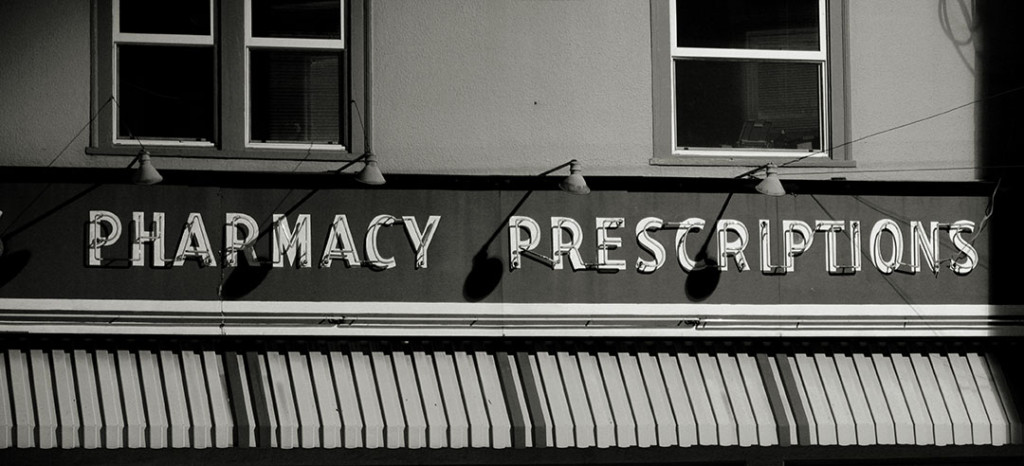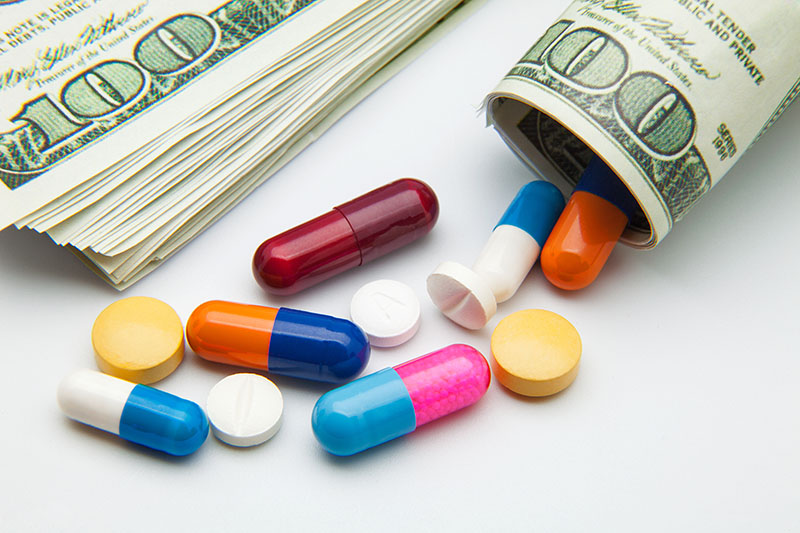Off-label Use
Before a pharmaceutical company can market a new medication to the public, the drug and its uses and dosages must be approved by the FDA. In the interest of protecting consumers, the regulatory agency maintains a strict set of clinical trials, evaluations, and performance standards that new substances and treatments must satisfy before being approved for public sales.
Part of this approval process includes creating the “drug label” that specifies the exact uses the pharmaceutical compound may be prescribed for, including the patient populations and dosages. Although many substances may have potential alternative applications, approval is only given for those treatments that meet the most stringent testing. Using a medication to treat an illness in a way other than what the FDA has approved is known as off-label use.
Physicians, however, may sometimes prescribe drugs for off-label use in the patient’s best interest. Some medicines can be, in fact, effective to treat some conditions that affect a small number of selected patients. For example, more than half of all cancer-treating drugs are prescribed for off-label usage, particularly for those types of cancer that are too rare to conduct a full clinical trial.
Off-label Marketing
Off-label marketing, by contrast, is an act of criminal and civil fraud perpetrated by unscrupulous manufacturers. The FDA and the United States Department of Justice (DOJ) monitor and enforce compliance with the highest quality standards in patients’ treatment. Off-label marketing occurs when a pharmaceutical company advertises the uses of a drug for which the regulators never granted explicit approval to healthcare providers and the public. For example, nifedipine was approved to treat blood pressure, but the sales representatives of some companies kept telling doctors that the same drug is also effective at treating migraines. This off-label use can become problematic because the medication has not undergone the rigorous safety and effectiveness testing the agency requires. At worst, the medicine may have hidden dangers when used off-label.
Pharmaceutical companies promote products off-label to increase sales. If healthcare providers believe a drug has multiple, safe uses, more doctors are likely to prescribe patients that medication. While physicians employ off-label usage for the benefit of their patients, off-label marketing is a fraudulent practice done as part of a corporate financial strategy. Patient welfare becomes secondary to the expansion of profits. This has led to numerous cases of inadequate testing, falsified research, and increased levels of consumer risk in the rush to market. Sometimes, this risk has resulted in serious harm to consumers.
The cost and dangers of off-label marketing

One of the biggest dangers of this unlawful practice is that a physician may be misled to believe that an off-label use of a prescription drug is safe or effective. According to a 2009 mail survey of 1,199 U.S. physicians and psychiatrists, there is a strong correlation between a doctor’s belief that the FDA has approved a pharmaceutical for a specific use and whether that doctor believes that use is effective or safe. This is problematic because the same survey found that nearly half of physicians wrongfully believed in the effectiveness of at least one off-label use of a medication that had little or no scientific support.
As this illicit marketing practice often occurs on a massive scale and produces significant public risk, the penalties associated with it have been some of the largest in the history of the False Claims Act. Between the years 2009 and 2014, the Department of Justice (DOJ) collected over $13 billion in settlement fees from major pharmaceutical manufacturers in FCA cases related to deceptive marketing.
Off-Label Marketing Strategies
There are three main off-label marketing strategies pharmaceutical companies employ to increase the number of prescriptions to new patients:
Promoting the treatment for unapproved diseases
The is the most common fraudulent strategy that consists of encouraging doctors to prescribe a medication for diseases outside of those the FDA has approved it to treat.
Promoting for unapproved indications of a disease
Often, the FDA will approve a drug to treat only certain severities or types of a disease. For example, a drug approved to treat depression in adults may be promoted to children or the elderly. This can be dangerous because different populations may experience different side effects while taking the same drug.
Promoting different dosages
In some cases, pharmaceutical companies have promoted higher dosages of a medicine in order to increase revenue. This can be an extremely dangerous strategy as increased dosages may cause new or more severe side effects than those observed during clinical trials.
Types of Off-Label Marketing
Pharmaceutical companies employ several different methods to illegally promote their drugs for unapproved indications. In a 2011 Harvard School of Public Health study, researchers identified the most common strategies used to encourage off-label prescription.
Promoting Off-Label Use to Doctors
Pharmaceutical sales representatives are prohibited from discussing off-label usage unless a physician asks explicitly. However, many companies have ignored this rule outright by teaching their salesmen to tout the benefits of prescribing a drug for other patient populations. In the most blatant cases, manufacturers have even hosted sponsored dinners and vacations where they gave presentations to doctors and healthcare providers about the benefits of different unapproved uses of a medication.
Providing Free Samples
Sales representatives will often be instructed to provide free samples of a drug to encourage doctors to give away sample treatments to types of patients who may not have tried a medication otherwise. In some of the more egregious cases, companies have sent free samples to pediatricians for drugs that have never been tested in children.
Financial incentives and kickbacks
Pharmaceutical companies have been known to give physicians and pharmacists expensive gifts or pay them thousands of dollars in speaking fees at a conference. Doctors who were more likely to promote a drug off-label, have also been known to receive lucrative consultant contracts in exchange for their continued services.
Teaching and research activities
After identifying doctors and healthcare thought leaders who support an off-label use, pharmaceutical companies will often arrange for those experts to give lectures and Continuing Medical Education (CME) seminars to promote it. In some instances, companies have organized seminars through shell corporations to create the impression of an unbiased presentation.
Helping Doctors receive reimbursements for off-label sales
Doctors are often unable to receive Medicare/Medicaid and insurance reimbursements for prescribing medications outside the range of FDA approval. Multiple pharmaceutical companies, however, have instructed healthcare providers how to manage their billing systems in a way to receive reimbursements for off-label prescriptions.
Patients gifts and incentives
Companies have targeted potential populations who could request an off-label prescription by sending gift certificates and other items of value.
Reviewing Patient Charts
Big Pharma analysts have reviewed doctors’ patient charts in order to identify potential candidates for unapproved prescriptions. Other than just being illegal marketing, this practice also violates patient confidentiality laws.

Past Off-Label Marketing Cases
Eli Lilly and Zyprexa
On January 2009, The company Eli Lilly pled guilty to criminal charges of off-label marketing for its drug Zyprexa, paying a combined criminal and civil fine of $1.415 billion. The drug was approved in March 2000 for the short-term treatment of Type 1 Bipolar mania and psychosis from schizophrenia. The Big Pharma, however, aggressively marketed it by spending massive amounts of money in medical education and grants to disseminate false information in the medical community about its safety and effectiveness in the treatment of anxiety, Alzheimer’s Disease, depression, insomnia, and dementia. Qui Tam whistleblowers split a total of $79 million from the money collected by the government.
Pfizer and Bextra
On September 2009, Pfizer pays $2.3 billion for criminal and civil charges after instructing his sales team to promote Bextra, a medication approved for the treatment of minor physical discomfort, to patients affected by more severe forms of pain. The company concealed the health risks that higher dosages brought to the kidneys, heart and skin, and placed undue financial strain on its patients, as Medicaid policy prevented it from reimbursing charges for off-label drug usage. Six insiders who blew the whistle split $102 million of the settlement.
Abbott Labs and Depakote
On May 2012, Abbott Labs paid $1.5 billion to the Department of Justice for the off-label promotion of the drug Depakote. Originally approved for use as an antipsychotic, the manufacturer started promoting its effectiveness in the treatment schizophrenia and elderly dementia years after the FDA ordered them to stop the clinical trials for these indications. The drug was, in fact, dangerous and caused aggression, confusion, and agitation in the elderly and the internal testing found it ineffective in the management of schizophrenia. Despite that, the company paid million of dollars in rebate incentives to nursing homes and pharmacies to increase drug sales. The Qui Tam relators who brought the initial case against Abbott received a $84 million reward.
Johnson & Johnson and Risperdal
On November 2013, Johnson & Johnson paid a fine of $2.2 billion in a landmark case of pharmaceutical fraud. To expand profits, J&J illegally marketed Risperdal, a medication indicated for the management of schizophrenia in adults, for or the treatment of dementia in the elderly and for ADHD in children without any prior test. Later studies found that the drug caused premature and abnormal breast growth in prepubescent boys and girls. The wrongdoing was brought to light through the efforts of multiple whistleblowers, who were awarded $167 million.
Identifying fraudulent schemes and taking action
Most off-label promotion strategies are company-wide and are usually spread through marketing departments during meetings and seminars. This often makes the practice an open secret, or at the very least provides strong clues to employees regarding the impropriety. Roughly 95% of all FCA lawsuits are qui tam cases brought forward by company insider whistleblowers.
Off-label marketing cases often originate from the pharmaceutical representatives who are charged with executing the illicit scheme. If you suspect that you are being asked to perpetrate such a fraud, there are several signs you can look for:
- Company’s legal department explicitly warns employees against off-label marketing, while simultaneously continuing an obviously wrongful strategy. Note that under the guidelines of the FCA, these legal warnings do not create deniability.
- Employees usually receive verbal orders or directions that differ from explicit, written company policy about how to market a drug.
- Sales representatives are instructed to focus their pitch on the symptoms that a product might cure, rather than the larger context of the illness itself.
- The company provides explicit instructions to delete documents, emails, or brochures that mention specific off-label uses. This is particularly noteworthy if the instructions violate the company’s own record retention policy.
- Employees receive incentives tied to off-label promotion. In some instances, sales representatives have been tasked with meeting prescription increase quotas for a population that could only be met through unapproved indications.
Take a step forward and blow the whistle

If you know of any ongoing illegal marketing schemes that involve off-label promotion of pharmaceuticals in your workplace, you may take action and blow the whistle. Contact our legal team immediately and our attorneys will provide you with all the help you need to bring those responsible to justice. We will grant you full anonymity and confidentiality as we assist you through the entire legal process. Call us now or file a contact form to receive a free consultation.
